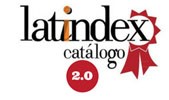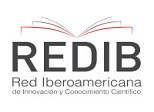Artificial Intelligence and the Academic Performance of Senior High School Students In Ecuador
DOI:
https://doi.org/10.69890/hallazgos21.v9i2.660Keywords:
Artificial Intelligence, High School Education, Academic performance, Teacher training, Personalization of learningAbstract
Artificial intelligence (AI) has transformed education globally, positively influencing students' academic performance. This investigation focuses on the impact of AI on high school students in Ecuador, evaluating how it can be effectively integrated into their context. Using a bibliographic review of previous studies on the implementation of AI in secondary education, both in Ecuador and other countries, a qualitative investigation is presented in which empirical and theoretical studies and success stories and challenges are analyzed. The experiences of institutions that have integrated AI into their curricula are examined, highlighting improvements in academic performance, motivation, and student satisfaction. The results indicate that AI can personalize learning, adapt to individual needs, and provide real-time feedback, improving academic performance and student motivation. However, challenges are identified such as the lack of adequate technological infrastructure and the resilience of teachers, who often lack training to integrate AI; besides, adapting these tools to the local and cultural Ecuadorian context is necessary. It is concluded that successful implementation requires a comprehensive approach that considers the key factors identified and adapts solutions to the specific needs and context of the Ecuadorian educational system.
References
Albuja Sánchez, B., & Guadalupe Almeida, J.L. (2022). Áreas de estudio y aplicación de inteligencia artificial en las universidades mejor puntuadas del Ecuador. Revista Científica y Tecnológica UPSE (RCTU), 9(2), 58-74. https://doi.org/10.26423/rctu.v9i2.705
Aoun, J. E. (2017). Robot-Proof: Higher Education in the Age of Artificial Intelligence. MIT Press. https://direct.mit.edu/books/book/3628/Robot-ProofHigher-Education-in-the-Age-of
Baker, R. S., & Inventado, P. S. (2014). Educational Data Mining and Learning Analytics. En:W., Brando (Ed.). Learning Analytics: From Research to Practice (pp. 61-75). New York: Springer. https://doi.org/10.1007/978-1-4614-3305-7_4
Baker, R. S., & Yacef, K. (2009). The State of Educational Data Mining in 2009: A Review and Future Visions. Journal of Educational Data Mining, 1(1), 3–17. https://doi.org/10.5281/zenodo.3554657
Chen, X., Xie, H., Zou, D., & Hwang, G. J. (2020). Application and theory gaps during the rise of Artificial Intelligence in Education. Computers and Education: Artificial Intelligence, 1, https://doi.org/10.1016/j.caeai.2020.100002.
Conejo, R. |., Millán, E., Mónica, T., Pérez-De-La-Cruz, Luis, J., & Antonia, R. (2004). SIETTE: A Web-Based Tool for Adaptive Testing. International Journal of Artificial Intelligence in Education, 14 (1),29-61. https://content.iospress.com/articles/international-journal-of-artificial-intelligence-in-education/jai14-1-03
Gómez-Aguilar, D. A., Hernández-García, Á., García-Peñalvo, J., & Therón, R. (2015). Tap into visual analysis of customization of grouping of activities in eLearning, Computers in Human Behavior, 47, 60-67.https://doi.org/10.1016/j.chb.2014.11.001.
Holmes, W., Bialik, M., & Fadel, C. (2019). Artificial Intelligence in Education: Promises and Implications for Teaching and Learning. Center for Curriculum Redesign.
Hwang, G. J., Xie, H., Wah, B. W., & Gašević, D. (2020). Vision, challenges, roles and research issues of Artificial Intelligence in Education. Computers & Education: Artificial Intelligence,1. DOI: 10.1016/j.caeai.2020.100001
Luckin, R., & Cukurova, M. (2019). Designing Educational Technologies in the Age of AI: A Learning Sciences-Driven Approach. British Journal of Educational Technology, 50 (6),2824-2838. https://eric.ed.gov/?id=EJ1232150
Luckin, R., & Holmes, W. (2016). Intelligence Unleashed: An argument for AI in Education. UCL Knowledge Lab: London, UK. https://discovery.ucl.ac.uk/id/eprint/1475756/
Popenici, S. A., & Kerr, S. (2017). Exploring the impact of artificial intelligence on teaching and learning in higher education. Research and Practice in Technology Enhanced Learning, 12(1), 1-13. https://doi.org/10.1186/s41039-017-0062-8
Salas-Pilco, S.Z., Yang, Y. (2022). Artificial intelligence applications in Latin American higher education: a systematic review. Int J Educ Technol High Educ, 19 (21). https://doi.org/10.1186/s41239-022-00326-w
Selwyn, N. (2019). Should Robots Replace Teachers?: AI and the Future of Education. WILEY. https://www.wiley.com/en-us/Should+Robots+Replace+Teachers%3F%3A+AI+and+the+Future+of+Education-p-9781509528967
West, D. M. (2019). The Future of Work: Robots, AI, and Automation. Brookings. https://www.brookings.edu/books/the-automated-society/
Zawacki-Richter, O., Marín, V. I., Bond, M., & Gouverneur, F. (2019). Systematic review of research on artificial intelligence applications in higher education – where are the educators?International Journal of Educational Technology in Higher Education, (16). https://doi.org/10.1186/s41239-019-0171-0
Published
How to Cite
Issue
Section
License
Los artículos enviados a la Revista Científica Hallazgos21 deberán ser totalmente originales e inéditos.
Los autores son los responsables de los textos y las imágenes incluidas en los artículos y no necesariamente reflejan el pensamiento de la editorial o de la Pontificia Universidad Católica del Ecuador, Sede Esmeraldas (PUCESE).
Los autores disponen cederle a la Revista Científica Hallazgos21 todos los derechos inherentes para la edición, publicación y distribución o divulgación del mismo.
Se autoriza a las revistas firmantes de los acuerdos de Encuentros de Revistas Latinoamericanas para reproducir en parte o totalmente los artículos con la sola mención de la fuente claramente señalada.







